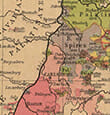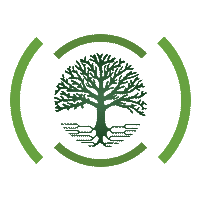Close to fifty million Americans trace at least part of their ancestry to Germany, representing the largest immigrant group in America. Researching 17th and 18th Century German Ancestors introduces family historians to the records, history, and causes of German migration to colonial America, the impact of religious persecution and groups that migrated, and the early German settlements in Pennsylvania.
 Researching 17th and 18th Century German Ancestors will provide you with background information about why Germans came to America and the significance of “First Wave” immigrants. You will learn what American records are available to help trace your ancestors, including shipping notices, naturalization records, books, and church records in both America and Europe. The course also covers how to use German records such as guild registers, tax lists, and citizenship records, which can sometimes be available in the search for ancestors. Also discussed are methodologies for finding European villages of origin.
Researching 17th and 18th Century German Ancestors will provide you with background information about why Germans came to America and the significance of “First Wave” immigrants. You will learn what American records are available to help trace your ancestors, including shipping notices, naturalization records, books, and church records in both America and Europe. The course also covers how to use German records such as guild registers, tax lists, and citizenship records, which can sometimes be available in the search for ancestors. Also discussed are methodologies for finding European villages of origin.
The course is divided into six modules, which include readings, web links, and self-correcting quizzes as well as a bibliography. A full syllabus is provided to course registrants. The course modules are as follows.
 Author James M. Beidler is a freelance genealogy lecturer, award-winning writer,columnist, and researcher pecializing in German research, Pennsylvania ancestry, newspapers, and land records.
Author James M. Beidler is a freelance genealogy lecturer, award-winning writer,columnist, and researcher pecializing in German research, Pennsylvania ancestry, newspapers, and land records.
Since the online courses under the Continuing Genealogical Studies category are cloud-based, you can take the course from home or anywhere at any time. You need either a computer or tablet with an internet connection to access the lessons, examples, exercises, and quizzes. No software or material is loaded onto your computer or tablet.
To optimize your online learning experience, the Canvas system uses the current version of a number of different browsers. To check for your browser compatibility, please see https://guides.instructure.com/m/67952/l/720329-which-browsers-does-canvas-support for further information and details.
NGS grants a license to an individual to take the course shown above. This grants the individual a personal, nonexclusive, nontransferable right to the course materials for that student’s personal educational use only. All students work independently.
The Continuing Genealogical Studies series courses have no set time or date for attendance. These online courses are geared toward individuals who have schedules that are varied and may include work, volunteer, and personal demands. You prioritize your time management and your learning, so your course work can be scheduled at your own pace.
Upon registration, you have access to the course for six months from the date of registration. If you need extra time, a one-time extension of three months is granted by contacting the NGS Course Administrator.
Within three business days, you receive two separate emails, one that confirms your registration and one that provides log in instructions.
All purchases of courses are final. No refunds or credits are available.

 Researching 17th and 18th Century German Ancestors will provide you with background information about why Germans came to America and the significance of “First Wave” immigrants. You will learn what American records are available to help trace your ancestors, including shipping notices, naturalization records, books, and church records in both America and Europe. The course also covers how to use German records such as guild registers, tax lists, and citizenship records, which can sometimes be available in the search for ancestors. Also discussed are methodologies for finding European villages of origin.
Researching 17th and 18th Century German Ancestors will provide you with background information about why Germans came to America and the significance of “First Wave” immigrants. You will learn what American records are available to help trace your ancestors, including shipping notices, naturalization records, books, and church records in both America and Europe. The course also covers how to use German records such as guild registers, tax lists, and citizenship records, which can sometimes be available in the search for ancestors. Also discussed are methodologies for finding European villages of origin.